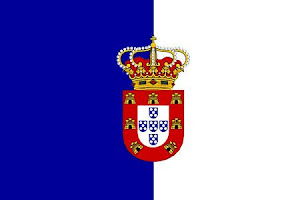Daniel Bradley: «Nom somos celtas, mas galegos/as»
(cliking on the title explains what the link offers)
By Brian Donelly
CELTIC nations such as Scotland and Ireland have more in common with the Portuguese and Spanish than with the Celts of central Europe, according to a new academic report.
Historians have long believed that the British Isles were swamped by a massive invasion of Iron Age Celts from central Europe around 500BC.
However, geneticists at Trinity College in Dublin now claim that the Scots and Irish have more in common with the people of north-western Spain.
Dr Daniel Bradley, genetics lecturer at Trinity College, said a new study into Celtic origins revealed close affinities with the people of Galicia.
He said: "It's well-known that there are cultural relations between the areas but now this shows there is much more. We think the links are much older than that of the Iron Age because it also shows affinities with the Basque region, which isn't a Celtic region."
He added: "The links point towards other Celtic nations, in particular Scotland, but they also point to Spain."
Historians believed the Celts, originally Indo-European, invaded the Atlantic islands in a massive migration 2500 years ago.
But using DNA samples from people living in Celtic nations and other parts of Europe, geneticists at the university have drawn new parallels.
Dr Bradley said it was possible migrants moved from the Iberian peninsula to Ireland as far back as 6000 years ago up until 3000 years ago.
"I don't agree with the idea of a massive Iron Age invasion that took over the Atlantic islands. You can regard the ocean, rather than a barrier, as a communication route," Dr Bradley said.
Archaeologists have also been questioning the links between the Celts of eastern France and southern Germany and the people of the British Isles and the new research appears to prove their theories.
The Dublin study found that people in areas traditionally known as Celtic, such as Ireland, Wales, Scotland, Brittany and Cornwall, had strong links with each other and had more in common with people from the Iberian peninsula.
It also found people in Ireland have more in common with Scots than any other nation.
"What we would propose is that this commonality among the Atlantic facade is much older, 6000 years ago or earlier," Dr Bradley added.
There are also close links between Scotland and Ireland dating back much further than the plantations of the 1600s when many Scots moved to Northern Ireland in search of fertile farming lands, the research showed.
However, the researchers could not determine whether fair skin, freckles, red hair and fiery tempers truly are Celtic traits.
Stephen Oppenheimer, professor of clinical socio-medical sciences at Oxford, said that the Celts of western Scotland, Wales, Ireland and Cornwall were descended from an ancient people living on the Atlantic coast when Britain was still attached to mainland Europe, while the English were more closely related to the Germanic peoples of the interior.
He said: "The English are the odd ones out because they are the ones more linked to continental Europe. The Scots, the Irish, the Welsh and the Cornish are all very similar in their genetic pattern to the Basque."
The study headed by Dr Bradley was published in the American Journal of Human Genetics.
From: The Herald, 10th September, 2004
DNA shows Scots and Irish should look to Spain for their ancestry
JOHN INNES
THE Irish and Scots may be as closely related to the people of Spain and Portugal as the Celts of central Europe.
Historians have long believed the British Isles were invaded by Iron Age Celts from central Europe in about 500 BC. But geneticists at Dublin’s Trinity College now claim the Scots and Irish have as much, if not more, in common with the people of north-western Spain.
Dr Daniel Bradley, genetics lecturer at Trinity College Dublin, said a study published in the American Journal of Human Genetics into Celtic origins revealed close affinities with the people of Galicia.
"It’s well known that there are cultural relations between the areas but now this shows there is much more," Dr Bradley said.
Historians believed that the Celts, who were originally from the Alpine regions of central Europe, invaded the Atlantic islands in a massive migration 2,500 years ago. But Dr Bradley said that it was possible migrants moved from the Iberian peninsula as far back as 6,000 years ago and up until 3,000 years ago.
The study, using DNA samples from people living in Celtic nations and other parts of Europe, found there are also close links between Scotland and Ireland dating back much further than the Plantations of the 1600s, when many Scots moved to northern Ireland in search of fertile farming land.
From: The Scotsman, 10th September 2004
The Irish are not Celts, say experts
By Jan Battles
The long-held belief that Ireland's population is descended from the Celts has been disproved by geneticists, who have concluded that they never invaded Ireland.
The research at Trinity College Dublin (TCD) into the origins of Ireland’s population found no substantial evidence of the Celts in Irish DNA, and concludes they never settled here en masse.
The study, part-funded by the National Millennium Committee, has just been published in The American Journal of Human Genetics. It was one of four projects funded by the government under the Genetic History of Ireland programme, which aimed to provide a definitive survey of the origins of the ancient peoples of Ireland.
Part of the project’s brief was to “discover whether there was a large incursion by Celtic people about 2,500 years ago” as was widely believed. After comparing a variety of genetic traits in Irish people with those of thousands of European and Near Eastern inhabitants, the scientists at TCD say there was not.
“Some people would go as far as saying there was total replacement of the population (of Ireland) 2,500 years ago,” said Brian McEvoy, one of the authors. “But if that happened we would definitely be more related to people in central Europe, because the Celts were supposed to have come from there. We’re just not seeing that. We’re seeing something earlier. Our legacy is the result of the first people to settle in Ireland around 9,000 years ago.”
About 15,000 years ago, ice covered Ireland, Britain and a lot of northern Europe so prehistoric man retreated back into Spain, Italy and Greece, which were still fairly temperate. When the ice started melting again around 12,000 years ago, people followed it northwards as areas became habitable again.
“The primary genetic legacy of Ireland seems to have come from people from Spain and Portugal after the last ice age,” said McEvoy. “They seem to have come up along the coast through western Europe and arrived in Ireland, Scotland and Wales. It’s not due to something that happened 2,500 years ago with Celts. “We have a very old genetic legacy.”
While we may not owe our heritage to the Celts, we are still linked to other populations considered Celtic, such as Scotland and Wales. McEvoy said: “It seems to be more a cultural spread than actual people coming in wiping out and replacing everyone else.”
A PhD student in Trinity’s department of genetics, McEvoy will present the findings tomorrow at the Irish Society of Human Genetics annual meeting.
He and Dan Bradley of TCD took samples of mitochondrial DNA, which is inherited from the mother, from 200 volunteers around Ireland using cheek swabs. They also compiled a database of more than 8,500 individuals from around Europe and analysed them for similarities and matches in the sequences.
They found most of the Irish samples matched with those around Britain and the Pyrenees in Spain. There were some matches in Scandinavia and parts of northern Africa.
“Of the Celtic regions, by far the strongest correspondence is with Scotland,” said Bradley. “It corresponds exactly with language.” While that could be due to the Plantation of Ulster, Bradley said it was more likely due to something much older because the matches occur throughout the whole of Ireland and not just the north.
The geneticists produced a map of Europe with contours linking places that were genetically similar. One contour goes around the edge of the Atlantic, around Wales, Scotland, Ireland and includes Galicia in Spain and the Basque region.
“This isn’t consistent with the idea of a large invasion here around 500BC,” said Bradley. “You would expect some more affinity with central Europe if we owed the bulk of our ancestry to a movement from central Europe but we don’t.”
Some archeologists also doubt there was a Celtic invasion because few of their artifacts have been found in Ireland.
From: The Sunday Times, 5 Sep 2004
By Brian Donelly
CELTIC nations such as Scotland and Ireland have more in common with the Portuguese and Spanish than with the Celts of central Europe, according to a new academic report.
Historians have long believed that the British Isles were swamped by a massive invasion of Iron Age Celts from central Europe around 500BC.
However, geneticists at Trinity College in Dublin now claim that the Scots and Irish have more in common with the people of north-western Spain.
Dr Daniel Bradley, genetics lecturer at Trinity College, said a new study into Celtic origins revealed close affinities with the people of Galicia.
He said: "It's well-known that there are cultural relations between the areas but now this shows there is much more. We think the links are much older than that of the Iron Age because it also shows affinities with the Basque region, which isn't a Celtic region."
He added: "The links point towards other Celtic nations, in particular Scotland, but they also point to Spain."
Historians believed the Celts, originally Indo-European, invaded the Atlantic islands in a massive migration 2500 years ago.
But using DNA samples from people living in Celtic nations and other parts of Europe, geneticists at the university have drawn new parallels.
Dr Bradley said it was possible migrants moved from the Iberian peninsula to Ireland as far back as 6000 years ago up until 3000 years ago.
"I don't agree with the idea of a massive Iron Age invasion that took over the Atlantic islands. You can regard the ocean, rather than a barrier, as a communication route," Dr Bradley said.
Archaeologists have also been questioning the links between the Celts of eastern France and southern Germany and the people of the British Isles and the new research appears to prove their theories.
The Dublin study found that people in areas traditionally known as Celtic, such as Ireland, Wales, Scotland, Brittany and Cornwall, had strong links with each other and had more in common with people from the Iberian peninsula.
It also found people in Ireland have more in common with Scots than any other nation.
"What we would propose is that this commonality among the Atlantic facade is much older, 6000 years ago or earlier," Dr Bradley added.
There are also close links between Scotland and Ireland dating back much further than the plantations of the 1600s when many Scots moved to Northern Ireland in search of fertile farming lands, the research showed.
However, the researchers could not determine whether fair skin, freckles, red hair and fiery tempers truly are Celtic traits.
Stephen Oppenheimer, professor of clinical socio-medical sciences at Oxford, said that the Celts of western Scotland, Wales, Ireland and Cornwall were descended from an ancient people living on the Atlantic coast when Britain was still attached to mainland Europe, while the English were more closely related to the Germanic peoples of the interior.
He said: "The English are the odd ones out because they are the ones more linked to continental Europe. The Scots, the Irish, the Welsh and the Cornish are all very similar in their genetic pattern to the Basque."
The study headed by Dr Bradley was published in the American Journal of Human Genetics.
From: The Herald, 10th September, 2004
DNA shows Scots and Irish should look to Spain for their ancestry
JOHN INNES
THE Irish and Scots may be as closely related to the people of Spain and Portugal as the Celts of central Europe.
Historians have long believed the British Isles were invaded by Iron Age Celts from central Europe in about 500 BC. But geneticists at Dublin’s Trinity College now claim the Scots and Irish have as much, if not more, in common with the people of north-western Spain.
Dr Daniel Bradley, genetics lecturer at Trinity College Dublin, said a study published in the American Journal of Human Genetics into Celtic origins revealed close affinities with the people of Galicia.
"It’s well known that there are cultural relations between the areas but now this shows there is much more," Dr Bradley said.
Historians believed that the Celts, who were originally from the Alpine regions of central Europe, invaded the Atlantic islands in a massive migration 2,500 years ago. But Dr Bradley said that it was possible migrants moved from the Iberian peninsula as far back as 6,000 years ago and up until 3,000 years ago.
The study, using DNA samples from people living in Celtic nations and other parts of Europe, found there are also close links between Scotland and Ireland dating back much further than the Plantations of the 1600s, when many Scots moved to northern Ireland in search of fertile farming land.
From: The Scotsman, 10th September 2004
The Irish are not Celts, say experts
By Jan Battles
The long-held belief that Ireland's population is descended from the Celts has been disproved by geneticists, who have concluded that they never invaded Ireland.
The research at Trinity College Dublin (TCD) into the origins of Ireland’s population found no substantial evidence of the Celts in Irish DNA, and concludes they never settled here en masse.
The study, part-funded by the National Millennium Committee, has just been published in The American Journal of Human Genetics. It was one of four projects funded by the government under the Genetic History of Ireland programme, which aimed to provide a definitive survey of the origins of the ancient peoples of Ireland.
Part of the project’s brief was to “discover whether there was a large incursion by Celtic people about 2,500 years ago” as was widely believed. After comparing a variety of genetic traits in Irish people with those of thousands of European and Near Eastern inhabitants, the scientists at TCD say there was not.
“Some people would go as far as saying there was total replacement of the population (of Ireland) 2,500 years ago,” said Brian McEvoy, one of the authors. “But if that happened we would definitely be more related to people in central Europe, because the Celts were supposed to have come from there. We’re just not seeing that. We’re seeing something earlier. Our legacy is the result of the first people to settle in Ireland around 9,000 years ago.”
About 15,000 years ago, ice covered Ireland, Britain and a lot of northern Europe so prehistoric man retreated back into Spain, Italy and Greece, which were still fairly temperate. When the ice started melting again around 12,000 years ago, people followed it northwards as areas became habitable again.
“The primary genetic legacy of Ireland seems to have come from people from Spain and Portugal after the last ice age,” said McEvoy. “They seem to have come up along the coast through western Europe and arrived in Ireland, Scotland and Wales. It’s not due to something that happened 2,500 years ago with Celts. “We have a very old genetic legacy.”
While we may not owe our heritage to the Celts, we are still linked to other populations considered Celtic, such as Scotland and Wales. McEvoy said: “It seems to be more a cultural spread than actual people coming in wiping out and replacing everyone else.”
A PhD student in Trinity’s department of genetics, McEvoy will present the findings tomorrow at the Irish Society of Human Genetics annual meeting.
He and Dan Bradley of TCD took samples of mitochondrial DNA, which is inherited from the mother, from 200 volunteers around Ireland using cheek swabs. They also compiled a database of more than 8,500 individuals from around Europe and analysed them for similarities and matches in the sequences.
They found most of the Irish samples matched with those around Britain and the Pyrenees in Spain. There were some matches in Scandinavia and parts of northern Africa.
“Of the Celtic regions, by far the strongest correspondence is with Scotland,” said Bradley. “It corresponds exactly with language.” While that could be due to the Plantation of Ulster, Bradley said it was more likely due to something much older because the matches occur throughout the whole of Ireland and not just the north.
The geneticists produced a map of Europe with contours linking places that were genetically similar. One contour goes around the edge of the Atlantic, around Wales, Scotland, Ireland and includes Galicia in Spain and the Basque region.
“This isn’t consistent with the idea of a large invasion here around 500BC,” said Bradley. “You would expect some more affinity with central Europe if we owed the bulk of our ancestry to a movement from central Europe but we don’t.”
Some archeologists also doubt there was a Celtic invasion because few of their artifacts have been found in Ireland.
From: The Sunday Times, 5 Sep 2004














No comments:
Post a Comment